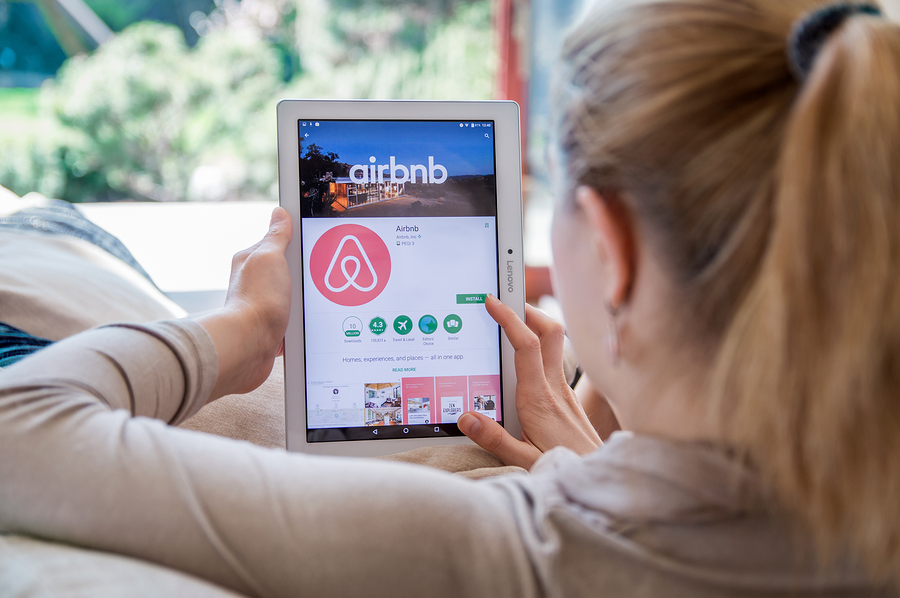A woman shouted in front of me, “Short-term rentals like Airbnb are bad. They’re putting local B&Bs out of business and ruining my neighborhood!” Emotions were running high at the town meeting. It was sounding like a witch hunt, all misplaced blame and zero logic. Fortunately, economic logic and common sense prevailed in the end.
No doubt, short-term rentals have been a touchpoint for hot debate in many communities. Whatever your opinion, Airbnb, VRBO (Vacation Rentals By Owner) and HomeAway represent a short-term rental trend growing across the world and you might want to cash in on it.
In this article, I’ll focus on Airbnb because it is the largest mover in this real estate niche. Here are some tips you will want to keep in mind.
State and local compliance
Each state and town has their own short-term rental laws. They will differ from your long-term rental in definition and legal specifics. It is possible that your locality does not even allow Airbnb rentals in specific terms. New York City is the famous example for this.
Many condominium complexes prevent short-term rentals in their bylaws. If short-term rentals are allowed, read the fine print.
Towns are usually very clear about what codes and regulations need to be followed. Make sure you are compliant before you post on Airbnb because your listing photographs will plainly reveal you.
Fees, taxes, the IRS and short-term rentals
Airbnb charges 3% for their services with each guest. That’s the easy part. More difficult, each locality and state has different tax laws for short-term rentals. Contact your local government to find out what you are responsible for.
How you’re taxed in the U.S. for short-term rental income is even trickier. Your own personal taxes vary based on your income, how often you rent out the home and how much you charge. If you are operating as a business entity, then that’s another ball of wax.
Just know that you will be responsible for paying taxes on whatever income your short-term rental provides. Airbnb sends tax forms directly to the IRS documenting income. Your bottom line is to keep good records and consult with an accountant and/or lawyer.
Insurance
Airbnb’s insurance policy offers “primary coverage for Airbnb hosts and landlords, as additional insureds, in over 15 countries. Our program protects against liability claims up to $1 million USD that occur in a listing, or on an Airbnb property, during a stay.”
Nice, but we all know that having an insurance policy and actually receiving money when something happens are two very different things. I would recommend getting an additional short-term rental insurance policy, just to be on the safe side. You never know, right?
How to set up your Airbnb account
Setting up an account with Airbnb is easy. They require all hosts and guests to provide identification with a photograph, usually a driver’s license. You then must pass facial recognition software, verifying that you are indeed the person on the license.
Once verified you can set up your bank account, credit card or PayPal account. Research says these are the two elements that make homeowners feel comfortable with welcoming strangers into their home. That the identity of the guests have been verified, and no money will be physically exchanged.
Setting up your listing
The written part of your listing is self-explanatory. Get all of the specific details of your property in black and white. If one burner on your stove doesn’t work, then be up front about it. Be honest and transparent. Don’t give unspoken promises. That thing you don’t want to mention will come up.
Manage peoples’ expectations in your listing and then you can exceed them in person. Good reviews are worth gold.
The most important element in your listing
Good photographs are, bar none, the most important element in your listing. Make sure you have clean, uncluttered rooms to begin with. Post the best quality photographs. Photograph every room in your home, with different angles to each one.
Think of a friend coming to your home for the first time. What landmarks will assist in recognizing your rental as guests arrive? Include photographs of your front door, the building from the outside, your street and anything else that might be helpful in finding your rental. Once your listing is live, promote it with social media.
The rest is fairly easy
Now you know the basics of starting a short-term rental business. First do your homework with short-term rental laws, compliance, taxes and insurance. After that heavy lifting, the rest is fairly easy.
In comparing notes with other Airbnb hosts, overall, guests have been respectful and considerate of their property. It can be a financially rewarding endeavor.
Learn more:
10 Tips for Putting the Sizzle Into Your Short-Term Rental
Thinking of Starting a Vacation Rental Business?
Real Estate Investing As a Hobby? I’m Kidding, Right?
***
Latest posts by Theresa Bradley-Banta (see all)
- Multifamily Common Areas Maintenance & Management Tips - March 31, 2020
- 8 Tenant Gift Ideas That Will Boost Your Bottom Line - November 11, 2019
- Need a Package Delivery System at Your Multifamily Rental Property? - October 28, 2019



